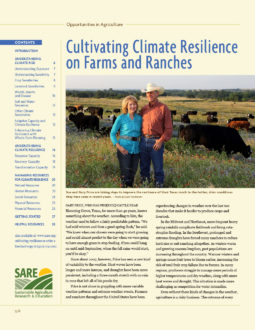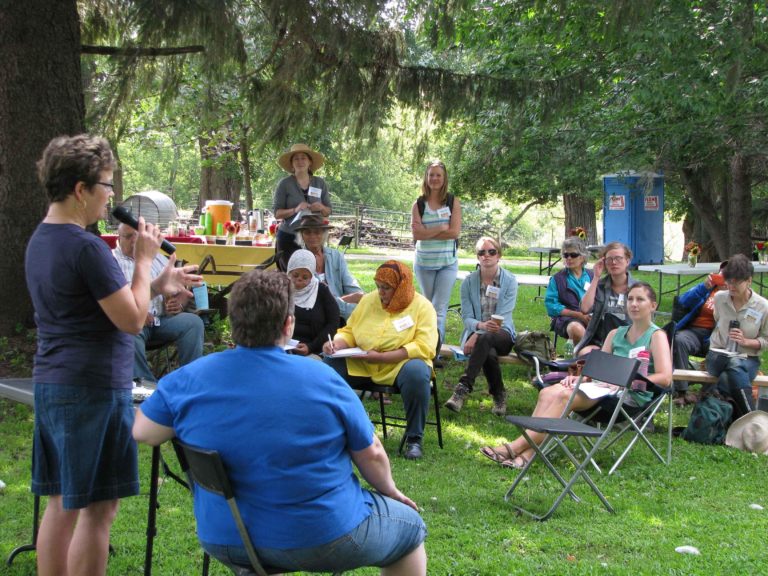Support from the community, and your engagement with it, can enhance the climate resilience of your farm or ranch. High-quality social resources can include experienced mentors, networking groups and loyal customers, as well as the local businesses and public and civic organizations that produce the goods, services and markets important to the success of your business.
Common ways to cultivate resilience through community engagement include participation in and support for direct markets, marketing and retail cooperatives, labor unions, sustainability associations, food policy councils and advisory networks. These kinds of entities can strengthen community capacity to establish and maintain effective community organizations, develop successful adaptation plans and manage community-based recovery responses.
On their 130,000-acre, fourth-generation ranch in Cimarron, N.M., Julia Davis Stafford and family members have taken many steps to cope with more intense periods of drought and the shrinking snowpack in nearby mountains that provides much of their water. Along with efforts to improve soil health, conserve water and more carefully manage grazing, Stafford sees networking as a vital part of building the ranch’s resilience. Through the Quivira Coalition, a local nonprofit that seeks to build the area’s ecological, economic and social resilience, Stafford learns how to improve management practices and, just as importantly, she values the chance to connect with fellow ranchers and land managers over their shared experience.
“What is always tremendously encouraging to me is just the networking at these various agricultural gatherings, talking to people and going to listen to them speak,” Stafford said. “Sometimes, particularly just after I get home from a Quivira Coalition conference, I feel we’ll be able to sort through this and go on just fine. And sometimes I feel really anxious about how we will keep going on if these same patterns—the drops in moisture and increasing temperatures—continue.”
On the farm, sustainable management practices that promote community well-being include hiring seasonal labor from the local community and supporting local businesses. Marketing and education strategies that increase knowledge about food production can cultivate mutual support and understanding between food producers and consumers. Examples include community-supported agriculture, farmers’ markets, hosting school tours and summer camps, agritourism and farm internships.

